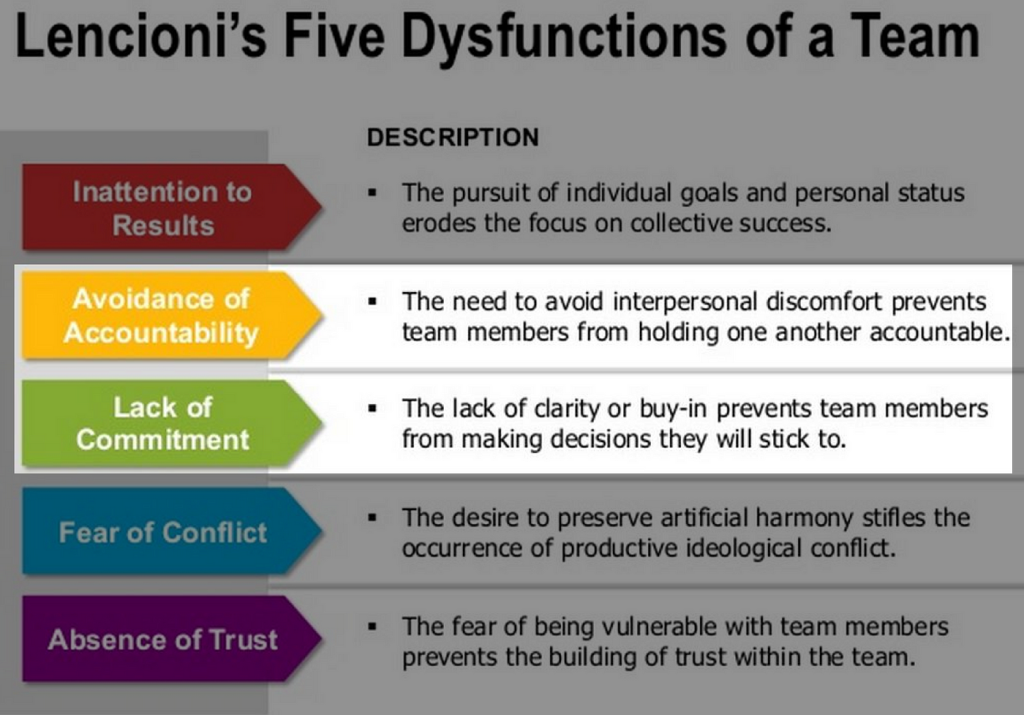
In the past year I found myself thinking a lot about accountability. As I was caching founders and teams I noticed that whenever we mentioned the term “accountability” or asked “Who is accountable?” people usually moved uncomfortably in their chairs.
Accountability felt like a hot potato no one wanted to hold, and so I kept thinking “We’re missing something here”. After all, we intuitively know that having clear accountability defined is key for ensuring things actually happen, and yet at the same time, we mostly avoid assigning or accepting it. WHY?
So I Googled accountability and it actually not so surprising that people shy away from it… I mean… “willingness to accept responsibility or to account for one’s actions”!
Does this look like something that you would willingly embrace? Does it have an ounce of positivity or inspiration in it? It sounds more like a sentence from a legal contract… the sentence the added so they can come back and sue you later on 🙁
What if we can reframe accountability so it will be in our best interest to embrace it?
If there is something coaching taught me is that everything is subjective and reframing has the power to completely change how we interpret reality, and as a result how we feel and act.
So I was wondering what would happen if instead of looking at accountability as a measure of personal responsibility, we’ll start looking at it as a social measure for our ability to achieve our goals as a group?
And it completely changed how I perceive accountability!
Let’s give it a try…
Reframing step 1: It’s not about responsibility it’s about SERVICE
The first step in reframing accountability from a personal to a social measure is changing the question we’re asking.
In accountability 1.0 we ask ourselves: What am I responsible for? And the answer is usually a list of deliverables (outputs).
In accountability 2.0 we ask ourselves two questions:
- Who is counting on me?
- What are they counting on me for?
When you look at accountability from this perspective, being accountable means knowing someone is ABLE to COUNT on you!
You’re AC-COUNT-ABLE.
And this shift in perception changes everything. Because we humans are incredible creatures that are wired to deliver value to others. And because service to others is one of the basic ways humans increase their sense of self-worth, suddenly being accountable becomes a way for increasing our value instead of a potential threat to our reputation. We actually have something to gain from embracing it!
Reframing step 2: It’s not about you or me it’s about us
There is a beautiful expression in Hebrew “Arvut Hadaddit” (ערבות הדדית): “The responsibility of a community for each of its members, and of each member for the community.”
Or as they say in Zulu “Ubuntu”, their term for humanity, that is best translated to English as: “I am because we are”

Both terms go back to the deep understanding that everything is connected and co-dependent and that the simple truth is that we can’t survive without each other.
In accountability 1.0 we ask: What am I responsible for?
In accountability 2.0 we ask “What are we trying to achieve together?” and then we as: “In order to achieve our goal what do you count on ME for? What do I count on YOU for?”
Accountability 2.0 is about codependency. It’s about a shared purpose. It’s about the power of together.
Putting accountability 2.0 into practice
Once I started looking at accountability as a social contract ensuring we achieve our common goals I changed my approach. When a discussion about accountability began (or was required) I started by reframing the discussion using the following questions:
- Who counts on us?
- Who are they counting on?
- What do they count on them to deliver?
- Is the person they are COUNTing on ABLE to deliver?
What I found happens, in many cases, when asking these 4 questions, is that the person who is being counted on realizes the scope of the task is way beyond their ability.
And this is when the beauty of accountability 2.0 comes into play because now the room asks the person who is counted on “Who do YOU count on?” and the whole process is repeated until there is a clear “contract” in the room and everyone knows who counts on who and for what.
Bridging Team Dysfunctions

In his book, Patrick Lencioni describes the 5 Dysfunctions of a team. Two of which are:
- Avoidance of accountability
- Lack of commitment
I believe that accountability 2.0 can help teams bridge these two dysfunctions by creating a co-dependent contact around a shared goal that results in a mutual commitment and mutual responsibility.
You count on me! I count on you!
Who counts on you?